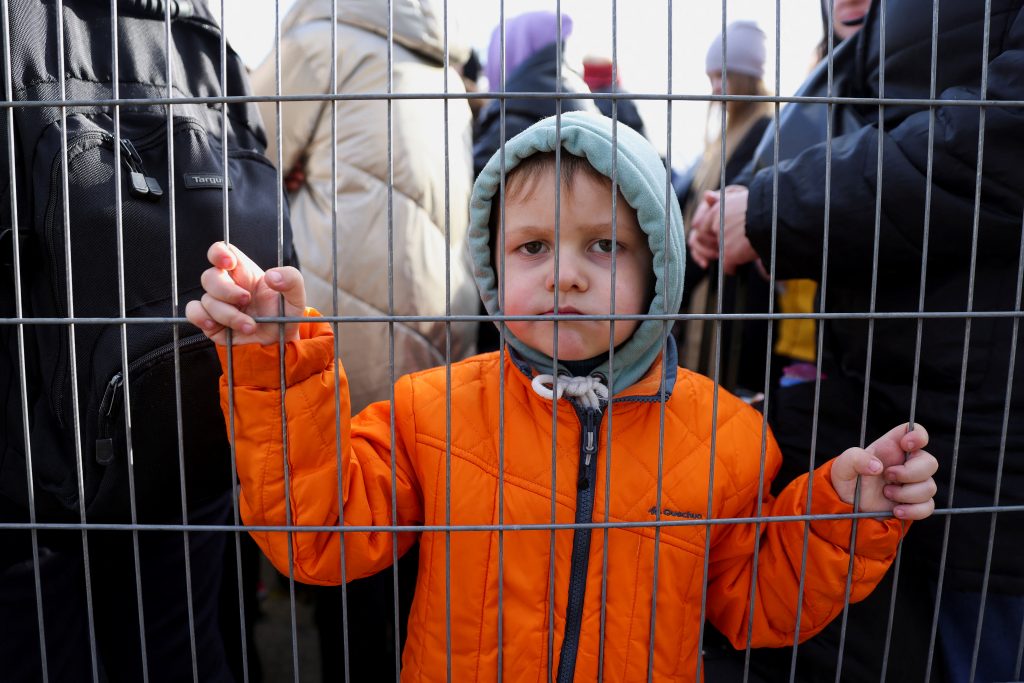Dutch-speaking schools have faced a mountain of challenges in recent years, from the pandemic overturning school systems as we knew them to chronic teacher shortages. The arrival of hundreds of Ukrainian children is expected to further exacerbate the situation.
Of all Belgian regions, Flanders has registered the largest number of Ukrainian refugees since the start of the conflict on 24 February: a total of 7,281 have already been included in the foreigners’ register in the region, compared to 1,013 people in Brussels and 3,545 in Wallonia.
On the first school day after the Easter holidays, 1,827 Ukrainian children took their places at the school desks of schools in Flanders, Flemish Minister of Education Ben Weyts told Radio 1 on Tuesday morning.
Although these figures seem manageable, it is impossible to tell how the situation will evolve, and how schools will cope in the coming months, his cabinet told The Brussels Times.
"We don't know exactly how many children will be enrolled where, there is freedom of choice in schools so parents can choose for themselves where they are going to enroll their children, meaning it is very difficult to predict what will happen in the coming weeks," Weyts' spokesperson Michaël Devoldere said.
'Wait and see'
After refugees are listed in the foreign registry, they have 60 days to comply with the mandatory education rules in Belgium. "Children can go to school straight away but they don't have to do that immediately."
This further complicates estimating the numbers that are still expected to enroll in the Flemish education system, but they are expected to increase. "It is difficult for us to say on which day and where children will start enrolling, so we will have to wait and see," Devoldere explained.
Related News
- Significant drop in Ukrainian refugees arriving in Belgium
- 'Left waiting for months': Ukrainian refugees in Antwerp face mountain of red tape
So far, it mainly concerns young Ukrainian children that are already registered in the region's school system, including 525 pre-schoolers and 920 pupils in primary school. In secondary education, 382 pupils from Ukraine have been registered, including in mainstream classes and in OKAN classes (reception education for non-native newcomers).
Delivering much-needed support
Schools with such OKAN classes already have quite a lot of experience with non-native pupils or children who come from war-torn countries, but there are also many schools that have never welcomed such pupils, Devoldere said. "For them, it is much more difficult, and they will need time to figure it all out."
Onze scholen kunnen rekenen op praktische en financiële ondersteuning. We zorgen voor extra middelen en extra mensen. Net als bij de coronacrisis betrekken we het brede onderwijsveld bij het crisisbeheer.#DeOchtend
— Ben Weyts (@BenWeyts) April 20, 2022
Tweet translation: "Our schools can count on practical and financial support. We will provide additional resources and extra people. As with the corona crisis, we involve the wider educational community in crisis management."
Overall, it is a massive challenge for the region's education system to take in hundreds or thousands more children in a short time. "Especially if you know that we already have a shortage of teachers in Flanders and that in some regions, there is already a lack of capacity."
Devoldere stressed that schools are only just seeing the light after two very difficult years due to the pandemic, "during which a great deal was asked of teaching staff."
"It is going a little better, but overall, it is a big challenge that will take us a while to overcome," he concluded.
If all goes to plan, an emergency decree will be voted on in the Flemish Parliament on Wednesday night to free up extra resources for schools to help them receive Ukrainian pupils, as well as to adapt some rules that will improve the situation, such as making it possible to provide education in Ukrainian by Ukrainian teachers.

